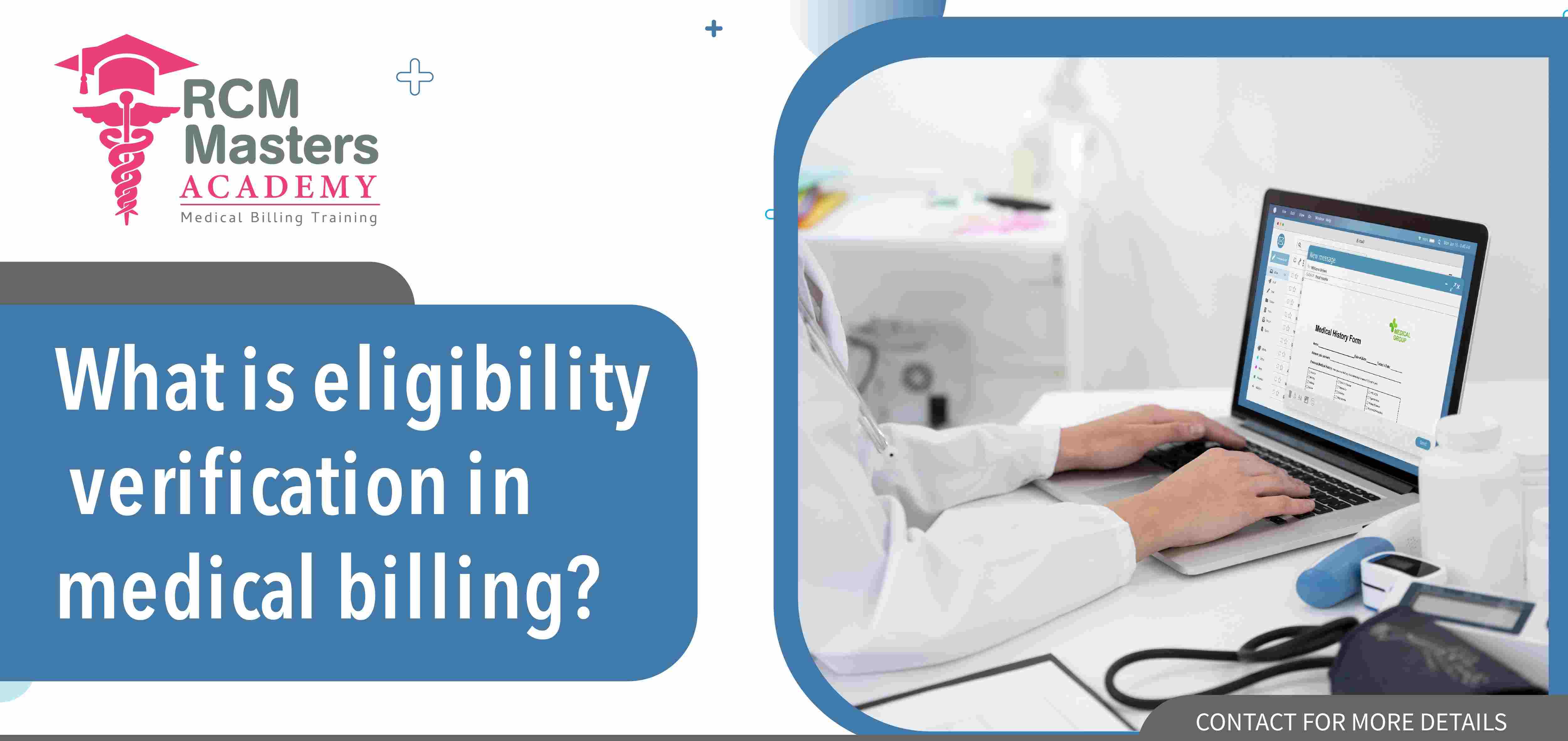 info@rcmmastersacademy.com
info@rcmmastersacademy.com

Eligibility verification is an essential process in medical billing. It is a crucial step that healthcare providers must undertake before submitting a claim to insurance companies. The purpose of eligibility verification is to ensure that the patient has valid insurance coverage and that the services provided by the healthcare provider are covered under the patient's insurance plan. We will discuss the importance of eligibility verification in medical billing.
The eligibility verification process starts when the patient schedules an appointment with a healthcare provider. The front desk staff of the healthcare provider's office will ask the patient for their insurance information, including their insurance ID number and the name of the insurance company. The front desk staff will then verify the patient's insurance coverage by contacting the insurance company or checking the insurance company's website.
The purpose of this verification is to ensure that the patient's insurance coverage is still valid and that the services that the healthcare provider will provide are covered under the patient's insurance plan. It is also essential to verify the patient's demographic information, such as their name, date of birth, and address, to ensure that the insurance company has accurate information.
Once the eligibility verification process is complete, the healthcare provider can then provide the necessary medical services to the patient. The healthcare provider can also submit a claim to the insurance company for reimbursement. If the eligibility verification process is not completed before the medical service is provided, the healthcare provider may not receive reimbursement for their services.
The eligibility verification process also helps to reduce claim denials and rejections. Claim denials occur when the insurance company refuses to pay for a medical service. Claim rejections occur when the insurance company returns the claim to the healthcare provider because of missing or incorrect information. Both of these scenarios can be costly for the healthcare provider, as they will not receive reimbursement for their services.
Eligibility verification helps to prevent these scenarios by ensuring that the patient's insurance coverage is valid and that the services provided are covered under the patient's insurance plan. This process also helps to identify any issues with the patient's insurance coverage, such as policy exclusions or limitations, that may affect the payment for the medical service.
In addition to reducing claim denials and rejections, eligibility verification also helps to improve the patient experience. Patients may be frustrated if they receive unexpected bills for medical services that they believed were covered under their insurance plan. Eligibility verification helps to prevent these situations by providing patients with accurate information about their insurance coverage and any potential out-of-pocket costs.
In conclusion, eligibility verification is a crucial process in medical billing. It ensures that the patient's insurance coverage is valid and that the services provided by the healthcare provider are covered under the patient's insurance plan. Eligibility verification helps to reduce claim denials and rejections, improve the patient experience, and prevent unexpected bills for medical services. Healthcare providers should make eligibility verification a priority to ensure that they receive reimbursement for their services and provide a positive patient experience.
You can enroll for our Online Medical Billing Training here: